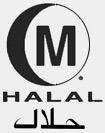Kosher認(rèn)證 與Halal認(rèn)證的差異 / Kosher certification and Halal certification
在伊斯蘭教中,halal 意思為“合法的”或“允許的”,指生活中的所有事物而不僅僅是食物。相反,kosher只是與食物有關(guān)的一個術(shù)語,在特指與食物有關(guān)的要求時,kosher與halal 有相似的意思表示,但是也有許多差別:
伊斯蘭教禁止所有令人醉的東西,包括酒精、酒精飲料和葡萄酒。但是猶太教認(rèn)為酒精和葡萄酒是kosher的。因此,kosher 食物中可以含酒精;而伊斯蘭教如果這樣做,則被認(rèn)為是haram。
許多猶太人認(rèn)為明膠是kosher的,不管它來源于何處。對于穆斯林,如果明膠是來源于豬則被認(rèn)為是haram。甚至許多學(xué)者認(rèn)為如果未經(jīng)伊斯蘭教屠宰的牛制成的明膠也是haram的。
在屠宰動物時,kosher不要求猶太人以主的名義宣布,但是穆斯林必須以主(ALLAH)的名義宣布。
在kosher 和halal 之間還有其他差異,對于穆斯林消費(fèi)者來說,這些差異使得一些kosher產(chǎn)品是haram的,或有疑問的。
In Islam, halal means ‘lawful’ or ‘permitted’ and refer to allmatters of life, not just food. So, Islamically, it is proper to refer to pure foods, marriage to a person whose bloodline is sufficiently far from one’s own bloodline, and having marital relations during the nights of Ramadan as being halal. In the same light, it is proper to refer to pork, marrage to your sister or brother, and marital acts performed between dawn and sunset-a.k.a., the fasting hours-during the month of Ramadan, as haram. In fact, any knowingly shameful deed is considered haram.
When it comes to meat and poultry, Muslims also use the term zabiha(dhabiha)to refer to meat from a halal animal slaughtered by Muslim in the prescribed Islamicway.(meat from haram animal does not become halal, even if it is slaughtered in the prescribed Islamic way and Muslim would never slaughter a haram animal.)conversely, kosher is a term associated only with food. It has a similar meaning as halal does in the context of food, but there are also many differences. Some of the diffences are listed below:
- Islam prohibits all intoxicants, including alcohols, liquors and wines, whereas Judaism regards a alcohol and wines as kosher. Hence kosher foods may contain alcohol. If they do, they aree considered haram in Islam.
- Gelatin is considered kosher by many Jews regardless of its source of origin. For Muslims, if gelatin is prepared from swine it is haram. Even if gelatin is prepared from cows that are not zabiha, many scholars consider it haran.
- Kosher practice does not require Jews to pronounce the nameof god on the animals while slaughtering, but muslims must pronounce the name of ‘ALLAH ‘ on all animals while in the act of slaughtering.
There are other differences between halal and kosher that make some kosher products haram or questionable with respect to Muslim consumption.
These differences may seem minor to some. However, indulging in acts or cuisine that is haram is very serious offense against ALLAH. Consuming alcohol or pork is a clear violation of ALLAH’s commandments and should not be taken lightly. Thepronoucement of the name of ALLAH at the time of slaughter is an act of worship and obedience in its own right. Not only is this pronouncement an act of worship of the most high unto itself, it also is the key to many blessings and bounties. Muslims and non-muslims alike can taste the difference in meat slaughtered in begin,humane manner and meat slaughtered while foregong the tite’s inherent. Compassion to the animal.

